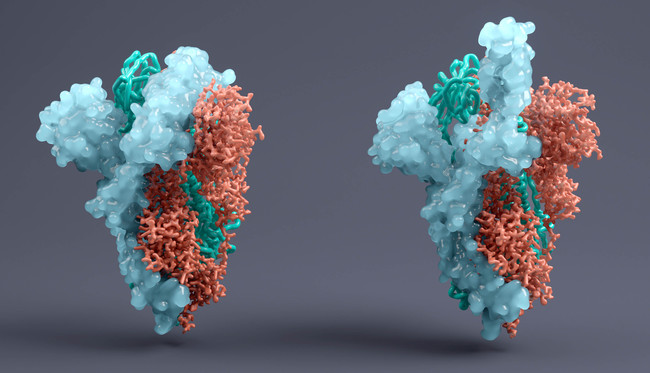New COVID variant 'may sidestep vaccine protection'

A new variant of COVID-19 identified in Botswana with dozens of mutations is being watched closely, amid fears it could be resistant to the effect of currently-used vaccines.
The B.1.1.529 variant has more mutations affecting the spike protein targeted by vaccines than any other strain identified to date, although it's not yet clear if it is more or less transmissible.
There have only been a few confirmed cases so far, including three in Botswana, six in South Africa where surveillance is more robust, and one in Hong Kong in an individual who travelled from South Africa before being tested.
The mutations in the spike protein has been described as "really awful" by Tom Peacock, a virologist at Imperial College's department of infectious disease, in a tweet.
https://twitter.com/PeacockFlu/status/1463176821416075279
He also said that while case numbers are still very low, B.1.1.529 should be monitored carefully as the mutations suggest it "would be worse antigenically than nearly anything else about."
Prof Francois Balloux, director of the UCL Genetics Institute in London, said that the large number of mutations might indicate the variant evolved "during a chronic infection of an immunocompromised person, possibly in an untreated HIV/AIDS patient."
He also said that it would likely be poorly recognised by neutralising antibodies against the alpha or delta variants, but added it is difficult to predict how transmissible it may be at this stage.
"For the time being, it should be closely monitored and analysed, but there is no reason to get overly concerned, unless it starts going up in frequency in the near future," said Balloux.
One the positive side, there are signs that another variant that was causing concern earlier in the year – B.1.628 – seems to have fizzled out.
The strain was identified in the US and drew attention because it was the first evidence of a recombinant form of SARS-CoV2, generated when two strains combine in a con-infected person.
There are fears recombination could be a driver for the creation of new, more aggressive strains, but in this case the variant reached a global prevalence of around 0.5% before becoming extinct.
"There is no evidence it [was] more transmissible, virulent or better at evading immune recognition than other SARS-CoV-2 lineages," commented Balloux.












